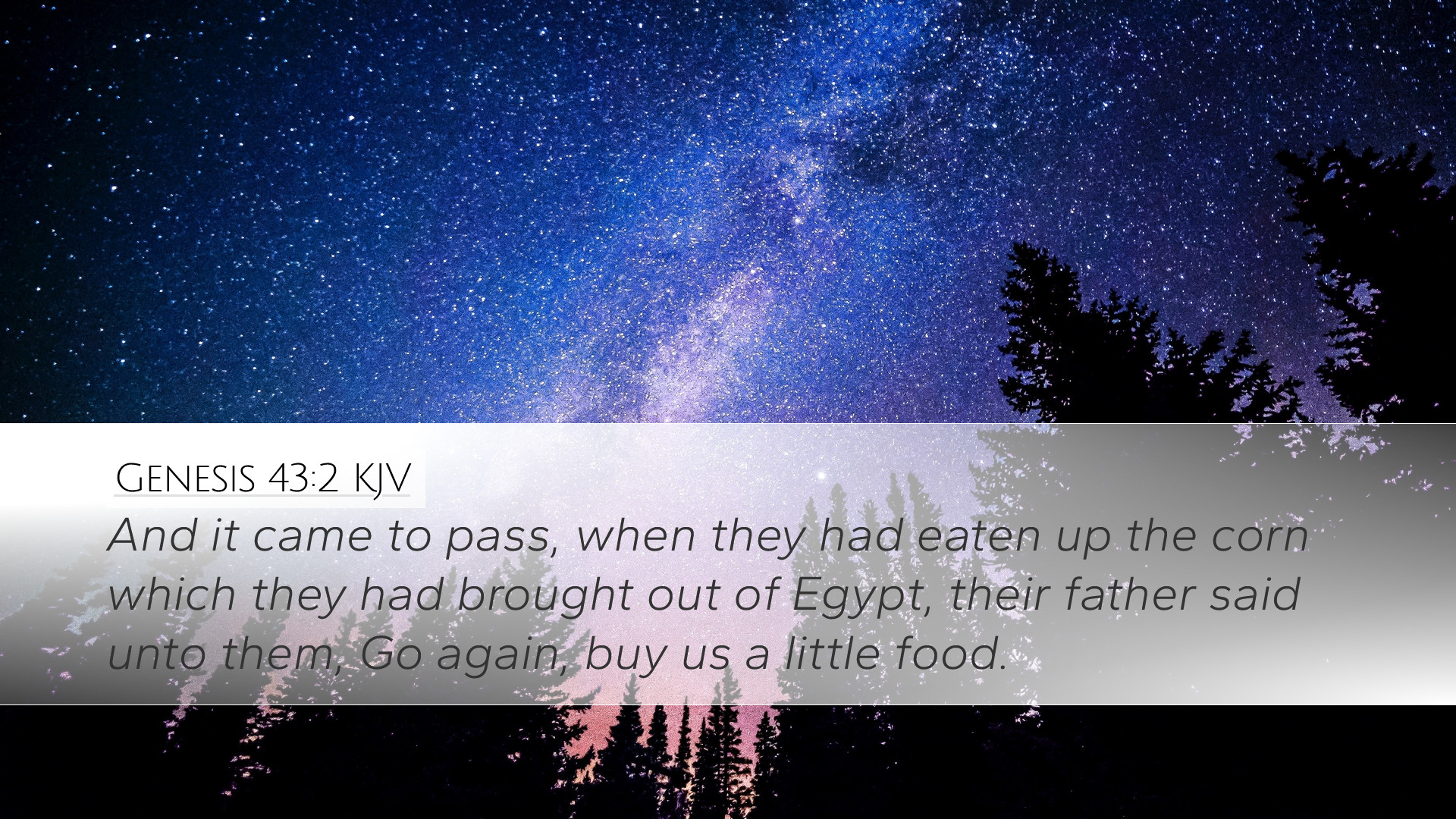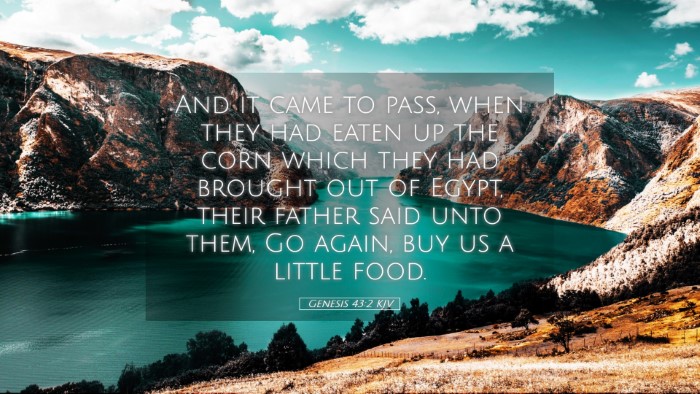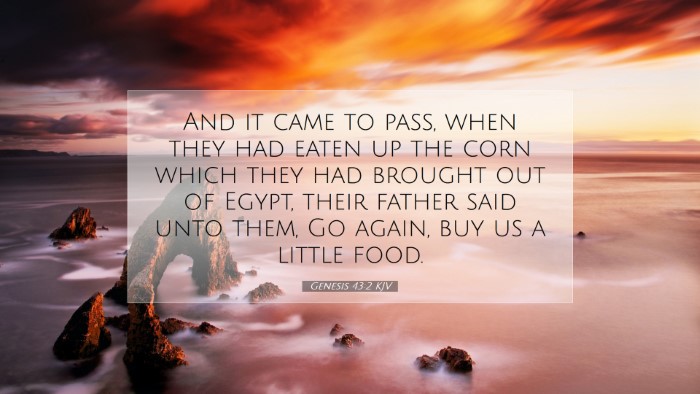Commentary on Genesis 43:2
Genesis 43:2 (KJV): "And it came to pass, when they had eaten up the corn which they had brought out of Egypt, their father said unto them, Go again, buy us a little food."
Overview
This verse marks a pivotal moment in the narrative of Joseph and his brothers, illustrating themes of sustenance, familial responsibility, and the unfolding of divine providence. It follows the initial journey to Egypt where Jacob’s sons obtained grain during a time of famine, which serves as a backdrop to the deeper, more complex familial dynamics at play.
Insights from Commentators
Matthew Henry
Matthew Henry emphasizes the necessity of sustenance, noting that the initial supplies procured from Egypt were insufficient for the family's continued survival. He observes that the phrase "eat up the corn" illustrates the inevitability of consumption - that all provisions are temporary and underscore the urgency of their return to Egypt for more food. Henry also highlights Jacob's leadership as he calls his sons to action, demonstrating a father’s duty to ensure his family’s welfare. Furthermore, this scenario reflects Jacob's earlier experiences with scarcity, linking to his dependence on God when facing crises.
Albert Barnes
Albert Barnes focuses on the historical context surrounding the famine, pointing out that this famine affected not just Jacob’s family but the entire region. He notes that the lack of food forced the family to confront their past decisions, specifically the implication of their previous actions toward Joseph. Barnes underscores the emotional weight of returning to Egypt, a place associated with betrayal and guilt. He comments on Jacob’s reluctance to send Benjamin, revealing deeper family tensions and fears of loss, which adds layers to the narrative of desperation and hope. The phrase "buy us a little food" signifies a plea for provision, reflecting both faith in Egypt's resources and a profound need for divine intervention.
Adam Clarke
Adam Clarke offers a detailed exegesis of the text, exploring the implications of the famine and the brothers' role in the narrative progression. Clarke draws attention to the agricultural context of the period, noting that grain was a crucial commodity, hence the urgency in Jacob's request. He also delves into Jacob’s emotional struggle, portraying him as a patriarch concerned for his family’s survival amidst what seems to be a divine test. Clarke suggests that the act of purchasing food symbolizes a broader theme of redemption; as the brothers journey back to Egypt, they are unwittingly moving towards reconciliation with Joseph, whom they had wronged. Clarke affirms that this passage highlights God’s sovereignty even amid human failures, culminating in a divine plan of restoration.
Theological Reflections
- The Sovereignty of God: The unfolding of events in Genesis 43:2 reflects the overarching theme of God's providential care. Despite the brothers' past mistakes, God orchestrates circumstances for eventual reconciliation.
- The Importance of Familial Bonds: Jacob's instructions spring from a deeply rooted sense of responsibility and care for his family. This underscores the biblical idea of family as a unit central to God’s design.
- Human Desperation and Divine Provision: The need for food symbolizes more than physical sustenance; it speaks to humanity’s deeper spiritual needs. The brothers’ journey to Egypt not only seeks grain but signifies the quest for resolution and healing.
- Preparation for Change: This moment serves as a precursor to significant changes within the family dynamic. The impending return to Egypt sets the stage for Joseph's revealing of his identity and the eventual restoration of familial ties.
Conclusion
Genesis 43:2 serves as a critical point in the narrative of Joseph and his brothers, illustrating both the profound human experiences of need and the divine orchestration of events leading toward redemption. Through the insights of Matthew Henry, Albert Barnes, and Adam Clarke, we appreciate the depth of this moment, highlighting themes central to the biblical text: familial responsibility, divine providence, and the journey toward reconciliation. Scholars, pastors, and students alike are invited to reflect on these profound dynamics and their implications for understanding the nature of God's interaction with humanity.


